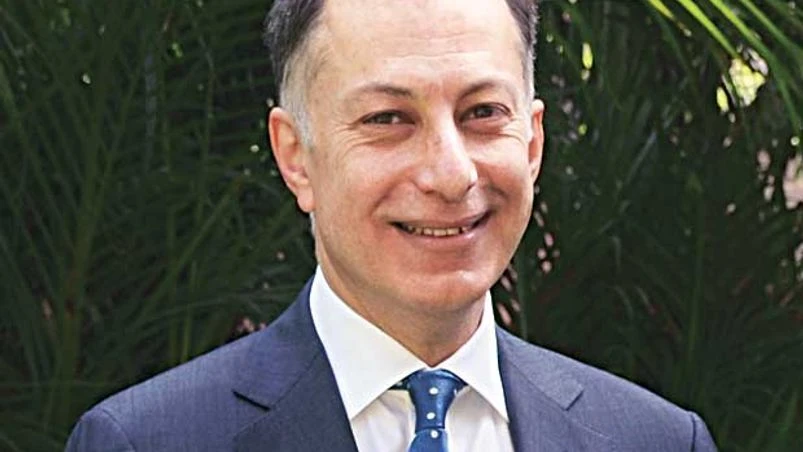 How does Naushad Forbes see India becoming one of the top 3 economies?
How does Naushad Forbes see India becoming one of the top 3 economies?
In an interview with Business Standard's Indivjal Dhasmana, Co-Chairman of Forbes Marshall Naushad Forbes, shares how India can become one of the world's top three economies. Listen in
Indivjal Dhasmana New Delhi
)
Ans:
>The book ‘The Struggle and the Promise – Restoring India’s Potential’ reflects author’s belief in India’s long-term potential
>Past experiences as a president of industry body CII reinforced Forbes’s confidence on what India could achieve as a country
>Pandemic-induced lockdown gave an opportunity to work on the book
Q: Does it still frustrate you about where India is, compared to its potential?
Ans:
>India is a country that can simultaneously inspire and frustrate everyday
Q: What are the grounds on the basis of which you say in the book that India has the potential to be a leader in the world?
And:
>Leading the world requires a strong, large, vibrant economy in a strong, large country
>Small countries may be strong, wise and inspiring, but they could hardly make a significant difference in the world
>India has the size and scale, derived from its young population, required to be a world leader
>India mattered little to the world because of its small economy before 1991
>From being the fifth largest economy in the world, India should aspire to become one of the top three
>India is an attractive country, which is our advantage over China
>India’s soft power is one of the attributes of a world leader
Q: India is the fifth largest economy. In years to come it could be in top three. But when you say the leader – do you have in mind that India would be the biggest economy in the world?
Ans:
>China is the second largest economy in the world, but it is larger than the US in terms of purchasing power parity
>40 yrs ago, India and China were at the same level. Today, China’s economy is five times of India.
>India’s should aspire to grow faster than China in the next few decades
>If India can match China in economic wellbeing, we can be among the world’s economies
Q: Is there a timeframe where we can meet this potential? Already our goal of Rs 5 trillion economy has been pushed back by two years.
Ans:
>Leadership is a two-step process – first, to be a leader of the world and second, to be the leader of the world
>India can be ‘a leader of the world’ in the next couple of years and get together with other countries that believes in a ‘rules-based international order’
>India needs to carry a liberal and open perspective while reaching out to the world
>To be ‘the leader of the world’, India should play the role of ‘a leader of the world’ consistently for a couple of decade
Q: But why we are not there at the moment? What ails our economy?
Ans:
>India needs a combination of industry, change in institutions and how we manage them and change in the role of the state and the policies we have
>Interactions between industry, institution and policy should be consistent with our culture
>Govt should play its essential but limited role well
>Govt should limit its focus on public health, primary education, judiciary, criminal justice system, financial regulation etc
Q: National priority is to create millions of jobs in the informal sector and contract labour. In this respect, does the repeal of farm laws affect shifting millions of jobs to the manufacturing sector?
Ans:
>Farm laws would boost agri productivity, but won’t create employment
>Informal jobs are better than marginal productivity agricultural jobs
>Informal jobs have no security and cannot raise productivity in the long run
>Manufacturing can employ relatively unskilled people and raise productivity
>India’s manufacturing growth has been largely led by skill and capital investment
Q: Recently, former RBI governor Raghuram Rajan has prescribed that India should rather focus on services-led export strategy instead of focusing on manufacturing. What’s your take on that?
Ans:
>India can have a growing economy riding on service sector growth
>To be a vibrant economy in the long run, India needs to create millions of jobs
>Services alone cannot create millions of jobs
>Bulk of service sector jobs in developed economies are people who serve in restaurants, housekeeping, nurses etc
>Raghuram Rajan is right about advocating focused service sector export-oriented drive
>India needs lots of service sector jobs, as well as manufacturing jobs to be created
Watch video
Also Read
Don't miss the most important news and views of the day. Get them on our Telegram channel
First Published: Feb 24 2022 | 8:30 AM IST

